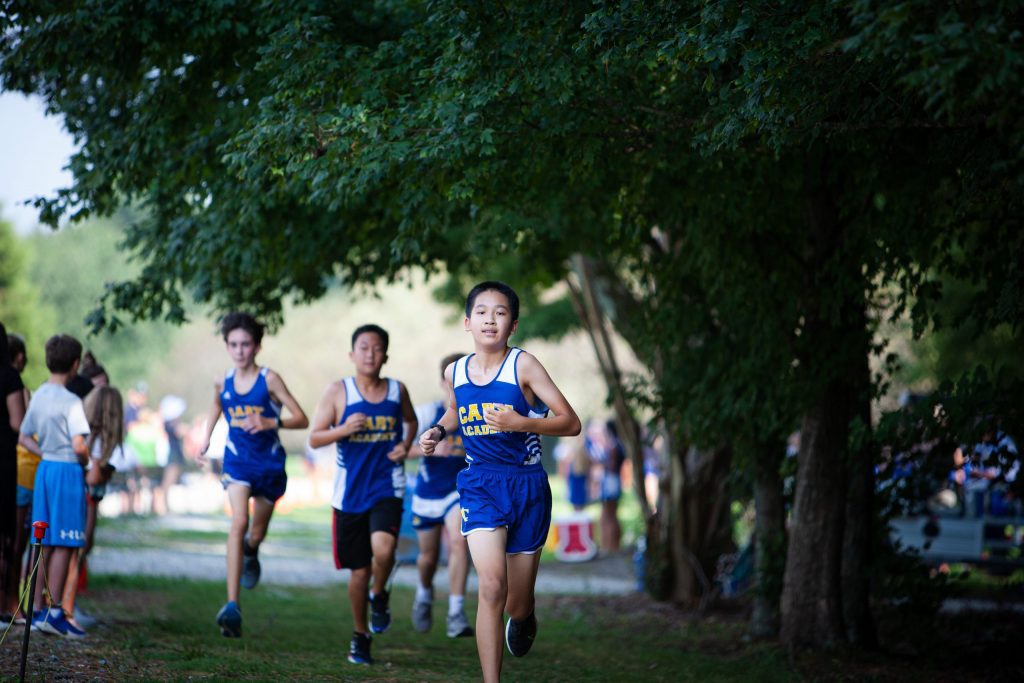Coach Pullen is a genius.
We had been watching our 65 middle school cross country students struggle through an early-season workout. A few students dutifully completed the warm-up jog. Still, most had quickly defaulted to walking — all the while grumbling about the heat, sore ankles, and assorted other tribulations associated with physical activity.
“OK, runners,” Coach shouted as they came in from the first loop of the field. “Those of you who are one of the top 15 to 20 runners on the team — my best runners — you can go out for another loop. The rest of you, go ahead and stop for a water break.”
I watched in amazement as at least half the team looked at one another, trying to assess the situation, themselves, and their friends… and then headed back out for a second loop. This time, at a full run.
Coach Pullen’s motivational technique got me rethinking about something I shared with Upper School students at their opening convocation this year.
There is a growing body of research on the positive impacts of having purpose in life. As Cornell University psychologist Anthony Burrow recently explained on an NPR podcast: “There seems to be accumulating evidence that one of the benefits of feeling a sense of purpose is that it can help us remain even keel in moments of stress or challenge, and sometimes even uplifting experiences.”
The challenge for all of us — but especially young people — is how to “find” that purpose.
Professor Burrow would be quick to point out that this might be the wrong way to look at it.
Purpose, he would say, is “cultivated,” not found. This happens by creating an environment where you establish a sense of identity and self-understanding, are exposed to new things, interesting questions, and challenging ideas, and then have some self-determination in where you go in life.
Fortunately, as I told the students in August, research shows us three potential ways to cultivate purpose.
- Proactive: A gradual, sustained attempt to engage in a topic or opportunity. Think of a hobby that morphs into something more, sometimes without even realizing when the transition happened.
- Reactive: Responding to something that happens in life, which can often be negative, that nonetheless gives somebody a newfound sense of purpose or direction.
- Pro-Social: Cultivating a sense of purpose through interacting and learning from other people and their passions or purposes. Like a hobby, this type of purpose acquisition may grow gradually over time — but it comes from our natural desire to share experiences with others.
We can see opportunities to cultivate purpose in all three ways here at Cary Academy, but certainly more clearly in ways 1 and 3. As we move further down the path of our strategic plan, we seek to build more opportunities to grow student interests and passions through coursework, extracurricular programs, and new experiential learning pathways embedded in X Days.
Which brings me back to Coach Pullen and seeing first-hand the power of pro-social motivation. None of our new runners are really experienced enough to know if the sport will be for them or if it will lead to a life-long association with running or fitness. For now, though, the experience of being together and of trying on the identity of “top runner,” is a powerful motivator and a positive experience.
That’s ultimately how the race is won—one step at a time.

